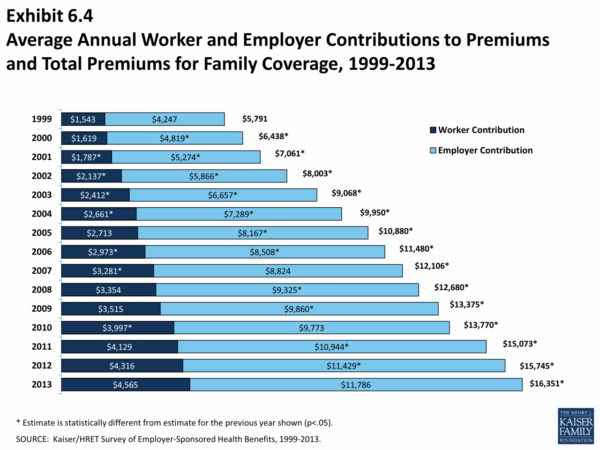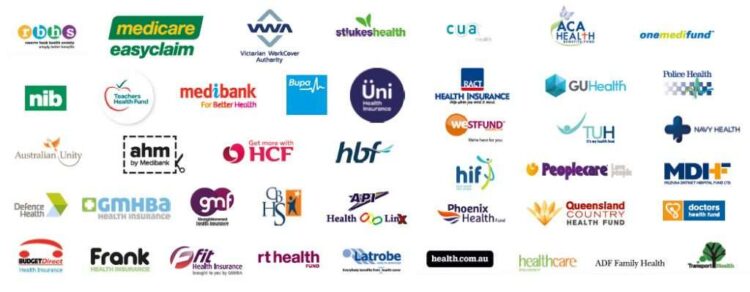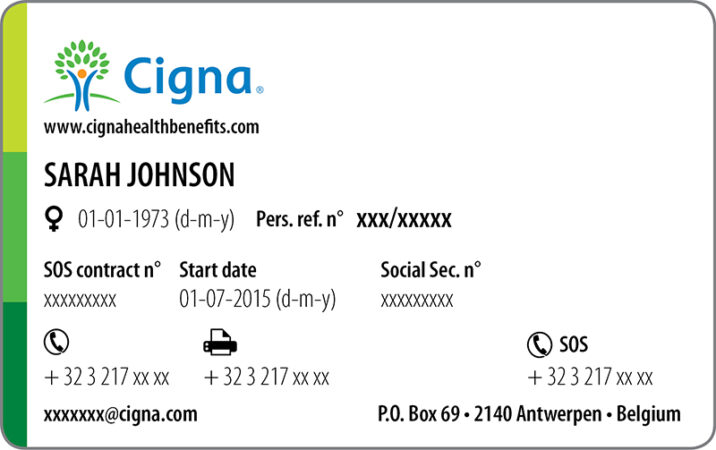
Can I purchase health insurance outside of my employer? Absolutely! While many people rely on employer-sponsored plans, navigating the world of individual health insurance can be a powerful way to take control of your health coverage. This guide will demystify the process, helping you understand the different types of plans available, how to enroll, and the factors that influence cost. Whether you’re self-employed, transitioning between jobs, or simply want more flexibility, exploring your options outside of your employer can lead to a personalized and potentially more affordable healthcare solution.
The world of individual health insurance offers a range of plans to fit various needs and budgets. You’ll find HMOs, PPOs, and EPOs, each with unique features and cost structures. Understanding these differences is crucial to making an informed decision. Additionally, factors like age, health status, location, and the level of coverage you desire all influence the cost of your premiums. Fortunately, financial assistance programs exist to help individuals who may struggle to afford health insurance.
Understanding Individual Health Insurance

Individual health insurance is a policy that you purchase directly from an insurance company, rather than through your employer. This means you are responsible for selecting the plan, paying the premiums, and managing your coverage. While employer-sponsored plans are often a good option, individual plans offer flexibility and control over your healthcare benefits.
Types of Individual Health Insurance Plans
There are several different types of individual health insurance plans available, each with its own set of features and benefits. Here’s a breakdown of some common options:
- Health Maintenance Organization (HMO): HMOs provide coverage through a network of healthcare providers. You must choose a primary care physician (PCP) within the network, who acts as your gatekeeper to specialists. HMOs typically have lower premiums than other types of plans but may have stricter coverage limitations.
- Preferred Provider Organization (PPO): PPOs offer a wider network of healthcare providers than HMOs. You can choose to see providers within or outside the network, but you’ll pay lower costs for in-network care. PPOs generally have higher premiums than HMOs but offer more flexibility.
- Exclusive Provider Organization (EPO): EPOs are similar to HMOs in that they require you to use a network of providers. However, EPOs do not offer out-of-network coverage, meaning you must seek care from a provider within the network. EPOs typically have lower premiums than PPOs but offer less flexibility.
- Point-of-Service (POS): POS plans combine features of HMOs and PPOs. You choose a PCP within the network, but you have the option to see out-of-network providers for a higher cost. POS plans offer more flexibility than HMOs but typically have higher premiums than EPOs.
- High Deductible Health Plan (HDHP): HDHPs have a higher deductible than other plans, meaning you pay more out-of-pocket before your insurance kicks in. However, HDHPs often have lower premiums. These plans are often paired with a Health Savings Account (HSA), which allows you to save pre-tax dollars for healthcare expenses.
Factors to Consider When Choosing an Individual Health Insurance Plan
When selecting an individual health insurance plan, there are several key factors to consider:
- Coverage: What types of healthcare services are covered by the plan? This includes essential health benefits such as preventive care, hospitalization, and prescription drugs.
- Premiums: How much will you pay monthly for the plan? This is the cost of your insurance coverage.
- Deductibles: How much will you need to pay out-of-pocket before your insurance begins to cover costs?
- Co-pays: How much will you pay for each doctor visit, prescription, or other healthcare service?
- Out-of-pocket maximum: What is the maximum amount you will need to pay out-of-pocket in a year? This is the total amount you’ll pay for deductibles, co-pays, and coinsurance.
- Network: What healthcare providers are included in the plan’s network? This is important if you have a specific doctor or specialist you prefer to see.
- Prescription drug coverage: What medications are covered by the plan? This is important if you take prescription medications regularly.
Eligibility and Enrollment
You can purchase individual health insurance if you meet certain eligibility requirements. These requirements can vary depending on your state and the insurance company you choose. However, generally, you must be a U.S. citizen or lawful resident and live in the state where you are applying for coverage.
There are different ways to apply for individual health insurance. You can apply online, through a broker, or by phone. The enrollment process typically involves providing personal information, such as your name, address, and Social Security number, as well as information about your health history. You will also need to choose a plan that meets your needs and budget.
Open Enrollment and Special Enrollment Periods
The open enrollment period for individual health insurance is typically from November 1st to January 15th. During this time, you can enroll in a plan or change your existing plan without having to provide a qualifying event.
However, there are also special enrollment periods when you can enroll in a plan outside of the open enrollment period. These periods typically occur when you experience a qualifying event, such as:
- Losing your job or employer-sponsored health insurance
- Getting married or divorced
- Having a baby or adopting a child
- Moving to a new state
If you experience a qualifying event, you will have 60 days from the date of the event to enroll in a new health insurance plan.
It’s important to note that if you don’t enroll in a health insurance plan during the open enrollment period or a special enrollment period, you may have to wait until the next open enrollment period to enroll, unless you experience a qualifying event.
Cost Considerations
The cost of individual health insurance premiums can vary significantly depending on several factors. Understanding these factors can help you make informed decisions about your coverage and budget.
Factors Influencing Premium Costs
Several factors influence the cost of individual health insurance premiums. These include:
- Age: Generally, older individuals pay higher premiums due to their increased likelihood of needing healthcare services.
- Health Status: Individuals with pre-existing health conditions often face higher premiums as insurers assess the potential risk associated with their health.
- Location: Premiums can vary depending on the cost of living and healthcare expenses in your area.
- Coverage Level: Choosing a plan with comprehensive coverage, such as a gold or platinum plan, will typically result in higher premiums compared to plans with lower coverage levels, like bronze or silver.
- Tobacco Use: Smokers generally pay higher premiums due to the increased health risks associated with smoking.
Comparison with Employer-Sponsored Plans
Individual health insurance plans often have higher premiums compared to employer-sponsored plans. This is because employers can negotiate lower rates with insurers due to their larger pool of insured employees. Additionally, employer-sponsored plans often receive tax benefits that further reduce the cost for employees.
Financial Assistance Programs
Individuals who struggle to afford health insurance may be eligible for financial assistance programs, such as:
- Premium Tax Credits: These tax credits are available through the Affordable Care Act (ACA) Marketplace and can help reduce the cost of monthly premiums. Eligibility is based on income and family size.
- Cost-Sharing Reductions: These reductions can help lower out-of-pocket costs, such as deductibles, copayments, and coinsurance. Eligibility is also based on income and family size.
- State-Based Programs: Many states offer their own programs to assist individuals with health insurance costs. These programs may have different eligibility requirements and benefits.
Benefits and Coverage

Individual health insurance plans offer a wide range of benefits and coverage designed to protect you from unexpected medical expenses. These plans typically include essential health benefits, which are mandated by the Affordable Care Act (ACA).
Essential Health Benefits
Essential health benefits are a set of services that must be included in all individual health insurance plans. These benefits are designed to provide comprehensive coverage for a variety of medical needs.
- Ambulatory Patient Services: This includes doctor’s visits, outpatient care, and other services provided in a doctor’s office or clinic.
- Emergency Services: This covers treatment for sudden and unexpected medical conditions, including hospitalization and other necessary care.
- Hospitalization: This includes inpatient care, surgery, and other services provided in a hospital.
- Maternity and Newborn Care: This covers prenatal care, labor and delivery, and postpartum care for mothers and newborns.
- Mental Health and Substance Use Disorder Services: This includes treatment for mental health conditions, addiction, and other behavioral health issues.
- Prescription Drugs: This covers the cost of prescription medications, including both generic and brand-name drugs.
- Rehabilitative Services and Devices: This includes physical therapy, occupational therapy, and other services that help individuals regain lost function after an illness or injury.
- Laboratory Services: This covers the cost of blood tests, urine tests, and other laboratory procedures.
- Preventive and Wellness Services: This includes screenings, immunizations, and other services that help prevent illness and maintain health.
Deductibles, Co-pays, and Out-of-Pocket Maximums
To understand how your individual health insurance plan works, it’s important to know about deductibles, co-pays, and out-of-pocket maximums.
- Deductible: This is the amount you must pay out-of-pocket for covered medical expenses before your insurance starts paying. For example, if your deductible is $1,000, you would need to pay the first $1,000 of your medical expenses before your insurance kicks in.
- Co-pay: This is a fixed amount you pay for certain covered services, such as doctor’s visits or prescription drugs. Co-pays are typically lower than deductibles and are paid at the time of service.
- Out-of-Pocket Maximum: This is the maximum amount you will have to pay out-of-pocket for covered medical expenses in a year. Once you reach your out-of-pocket maximum, your insurance will pay 100% of your remaining covered medical expenses for the rest of the year.
Limitations and Exclusions
While individual health insurance plans offer comprehensive coverage, they may have certain limitations and exclusions. It’s important to review your plan carefully to understand what is covered and what is not.
- Pre-existing Conditions: Some plans may have limitations or exclusions for pre-existing conditions, such as diabetes or heart disease. However, under the ACA, insurance companies cannot deny coverage or charge higher premiums based on pre-existing conditions.
- Experimental Treatments: Many plans do not cover experimental treatments or procedures that have not been approved by the Food and Drug Administration (FDA).
- Cosmetic Procedures: Most plans do not cover cosmetic procedures, such as plastic surgery or hair transplants.
- Out-of-Network Care: Plans may pay less for care received from providers outside of their network. You may also have to pay a higher deductible or co-pay for out-of-network care.
Pros and Cons of Individual Health Insurance
Purchasing health insurance outside of your employer, known as individual health insurance, offers a different approach to securing healthcare coverage. It provides you with more flexibility and control over your plan, but it also comes with its own set of considerations.
Flexibility and Control
Choosing an individual health insurance plan allows you to tailor your coverage to your specific needs and budget. Unlike employer-sponsored plans, which often have limited options, individual plans offer a wide range of choices in terms of coverage, deductibles, and premiums. This flexibility empowers you to select a plan that aligns with your healthcare priorities and financial circumstances.
Potential Risks of Individual Health Insurance
While individual health insurance provides greater flexibility, it also carries certain risks. One significant concern is the potential for higher premiums. Premiums for individual plans are typically determined based on your age, health status, location, and other factors. If you have pre-existing conditions or live in a high-cost area, your premiums might be higher compared to employer-sponsored plans.
- Limited Coverage: Individual plans might offer less comprehensive coverage compared to employer-sponsored plans. For instance, some individual plans may have higher deductibles or co-pays, leading to greater out-of-pocket expenses for healthcare services.
- Pre-Existing Conditions: Individuals with pre-existing conditions may face challenges obtaining affordable individual health insurance. Insurance companies can deny coverage or charge higher premiums based on your medical history.
- Coverage Gaps: It’s crucial to carefully review the coverage details of any individual health insurance plan to identify potential gaps in coverage. Some plans might have limitations on specific services or treatments, leading to unexpected costs.
Resources and Support

Navigating the world of individual health insurance can feel overwhelming, but you don’t have to go it alone. Several resources are available to help you understand your options, compare plans, and make informed decisions.
Government Websites
Government websites offer a wealth of information and tools to assist you in your health insurance journey. The HealthCare.gov website, run by the federal government, provides a comprehensive resource for individual health insurance plans. Here, you can:
- Compare plans based on your needs and budget.
- Enroll in a plan during open enrollment periods.
- Access financial assistance to help cover premiums.
- Learn about your rights and responsibilities as a health insurance consumer.
State-specific websites often provide additional information and resources, such as details on state-run health insurance marketplaces or programs for low-income individuals.
Insurance Marketplaces
Insurance marketplaces, like HealthCare.gov, are online platforms where you can shop for and compare individual health insurance plans from various insurance companies. These marketplaces often offer tools to help you narrow down your choices based on your budget, coverage needs, and other factors.
Consumer Advocacy Groups
Consumer advocacy groups provide valuable information and support to individuals seeking health insurance. They can help you understand your rights, navigate the complexities of the insurance system, and advocate on your behalf if you encounter problems. Some well-known consumer advocacy groups include:
- Consumer Reports
- The National Consumer Law Center
- The Center for Medicare Advocacy
Health Insurance Brokers and Agents, Can i purchase health insurance outside of my employer
Health insurance brokers and agents are licensed professionals who can help you find the right individual health insurance plan. They can:
- Explain your coverage options and answer your questions.
- Compare plans from different insurance companies.
- Help you enroll in a plan and navigate the enrollment process.
- Provide ongoing support and guidance throughout your insurance journey.
It’s important to choose a broker or agent who is licensed and experienced in individual health insurance. You can find brokers and agents through online directories, insurance company websites, or by asking for referrals from friends or family.
Tips for Navigating Individual Health Insurance
Here are some tips to help you navigate the complexities of individual health insurance and maximize your coverage:
- Understand your needs: Before shopping for insurance, take time to assess your health status, medical history, and coverage needs. Consider factors like your age, health conditions, and prescription medications.
- Compare plans carefully: Don’t just focus on the monthly premium. Compare plans based on their deductibles, copayments, coinsurance, and coverage for essential health benefits.
- Consider financial assistance: If you qualify, take advantage of financial assistance programs like premium tax credits or cost-sharing reductions to help offset the cost of your insurance.
- Read the fine print: Before enrolling in a plan, carefully read the policy document to understand your coverage, limitations, and exclusions.
- Ask questions: Don’t hesitate to ask questions about your coverage, enrollment process, or anything else you don’t understand.
Ending Remarks: Can I Purchase Health Insurance Outside Of My Employer
Ultimately, the decision of whether to purchase health insurance outside of your employer comes down to individual needs and preferences. Weighing the pros and cons, exploring your options, and seeking expert advice can lead you to the best plan for your circumstances. Remember, having health insurance provides peace of mind and financial security in case of unexpected medical expenses. By understanding the process and available resources, you can confidently navigate the world of individual health insurance and secure the coverage you need.
Quick FAQs
How do I find an individual health insurance plan that meets my needs?
You can compare plans online through insurance marketplaces, work with a health insurance broker, or contact insurance companies directly. Consider your budget, coverage requirements, and health status when making your selection.
What are the consequences of not having health insurance?
In the United States, individuals without health insurance may face significant financial penalties and could incur substantial medical expenses if they require treatment. It’s essential to have some form of health coverage.
What are the different types of individual health insurance plans?
Common types include HMOs (Health Maintenance Organizations), PPOs (Preferred Provider Organizations), and EPOs (Exclusive Provider Organizations). Each plan has its own network of providers, coverage limitations, and cost structure.
Can I change my individual health insurance plan during the year?
You can typically change your plan during the open enrollment period, which usually occurs in the fall. However, you may be eligible for a special enrollment period if you experience a qualifying life event, such as a job loss or marriage.





